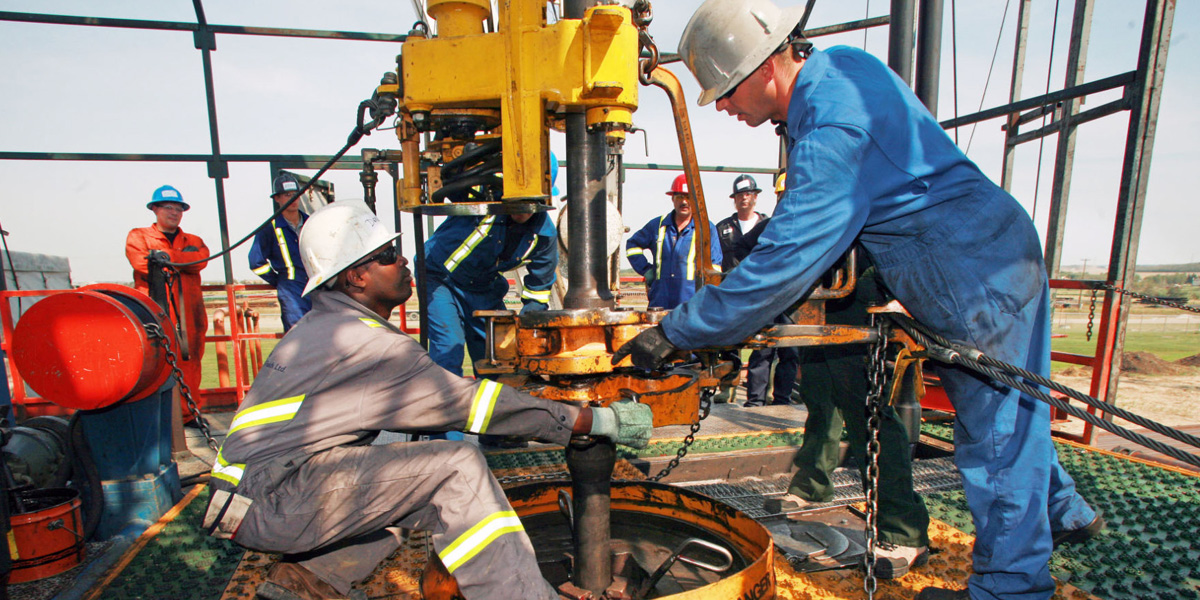Course Details
Your Growth, Our Mission

Course Description
The Training Course Will Highlight ?
Training Objective
Target Audience
This course is designed for persons involved in oil refining, and petrochemical industries, refinery instrumentation and refinery automation vendors, refinery marketing, fuel product traders, and government officials involved in regulating environmental and legislative issues, in particular, oil refinery organizational leaders, managers, project leads, or oil movements professionals who have the responsibility for developing and maintaining high performance oil movements and storage operations. Individuals who are involved with refinery planning and economics, crude and fuel coordinators, blending and oil movements engineers, and OM&S supervisors will especially benefit. OM&S operations team members will also gain great value from this programme. They will learn how to assess their own operations' strengths and assist their colleagues in improving the functioning of existing operations.
Training Methods
The program features classroom presentations, computer simulations for case studies,, large group discussions, and refinery OM&S operations profile and performance assessments tools. All participants will take away a comprehensive workbook with the course materials that will reinforce the hands-on training experience for many years to come.
Daily Agenda
DAY 1
What is “oil movements & storage “ (OM&S)?
- Overall refinery operations,
- Terminology,
- Storage,
- Inter-relationship of processes,
- Refinery streams, feedstocks, intermediates and finished products
- Typical offsites organization and responsibilities
- What is an “oil movements & storage automation system”?
Improving Offsites Operations and Profitability
- Operating problems
- Operating costs
- Profitability
- Product losses
- Environmental controls
Levels of Offsites Automation
- Supply and distribution/logistics
- Planning and scheduling
- Movement automation and blending
- Remote control and monitoring
- Tank farm field instrumentation elements
Tank farm field equipment
- Tanks
- Level gauges (float, servo, radar, HTG)
- Temperature gauges
- Block valves (MOV, ROV, manual with status, manual)
- Pumps and pump groups
- Mixers
- Loading arms
- In-line blenders
- Dye and additive injection systems
- On-line analyzers
- DCS/SCADA and RTU's
- Equipment shelters
- Communication networks
DAY 2
Functionality of oil movements & storage (OM&S) automation systems
- Types of movements (tasks) handled by OM&S systems
- Life cycle of a task
- Planning and scheduling of movements (tasks)
- Automated movement control
- Remote control of field equipment
- Field equipment monitoring (tanks, MOV, pumps, mixers, status switches)
- Data acquisition from field equipment
- Reporting, and historizing of movement information
- Interfaces to : LIMS, Refinery Information System, DCS and/or SCADA
Walk-through a Typical Movement: Tank to Tank Transfer
- Planning and defining a task
- Scheduling a task
- Task execution
- Path selection - dynamic optimal or predefined
- Sequence generation
- Sequence control
- Monitoring
Reporting
- Other walk-thru examples
- In-line blending
DAY 3
Quality Assurance
- Laboratory measurements
- ASTM methods
- Lab Information Systems (LIMS)
- On-line analyzers
- Advantages of real time multiple measurements vs. single Lab analysis
- Improving ASTM test methods measurements with ASTM 2885/3764
Environmental Issues
- Upcoming USA and EU regulations and new fuel specs
- Low sulfur gasoline and diesel
- Phase-out of MTBE
- Ethanol blending
- CARB/RFG-3
- Impact of the new regulations
- Contamination
- Downgrading
- Quality giveaway
- Segregated lines
- How can an OM&S system help?
OM&S System Architecture
- Typical hardware and software
- Data bases and interfaces
DAY 4
OM&S Operation Key Performance Indicators
Benefits of OM&S Automation and How to Calculate Them
- Inventory reduction
- Quantity giveaway minimization
- Quality giveaway minimization
- Use of least expensive components for blends
- Tankage minimization
- Higher equipment utilization factors
- Manpower efficiency increase
DAY 5
- teamwork laboratory:
- crude receipts and tank allocation
- gasoline blending
- tank to tank transfer
- delegate team presentations
- Current operations/most pressing operational problems
- Potential solutions
- Current KPI
- Improvement plans
Accreditation
BTS attendance certificate will be issued to all attendees completing a minimum of 80% of the total course duration.
Quick Enquiry
Request Info
Related Courses
Your Growth, Our Mission

